Sangamon County Learning Academy ranks in the top 10% of all schools in Illinois for overall test scores (math proficiency is top 10%, and reading proficiency is top 20%).
The percentage of students achieving proficiency in math is <50% (which is higher than the Illinois state average of 28%). The percentage of students achieving proficiency in reading/language arts is <50% (which is higher than the Illinois state average of 32%).
Quick Stats (2025)
- School Type: Alternative school
- Grades: 6-12
- Math Proficiency: <50% (Top 10% in IL)
- Reading Proficiency: <50%
- Source: National Center for Education Statistics (NCES), IL Dept. of Education
Top Rankings
Sangamon County Learning Academy ranks among the top 20% of public schools in Illinois for:
Category
Attribute
Math Proficiency
School Overview
The teacher population of 3 teachers has declined by 40% over five school years.
School Type
Grades Offered
Grades 6-12
Total Students (19-20)
52 students
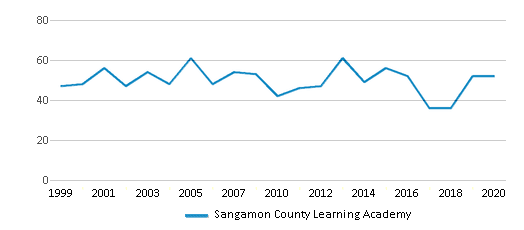
Total Classroom Teachers
3 teachers
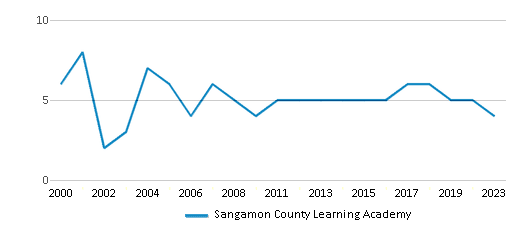
School Rankings
Math Test Scores (% Proficient)
(20-21)<50%
28%
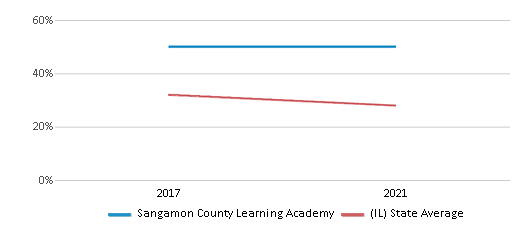
Reading/Language Arts Test Scores (% Proficient)
(20-21)<50%
32%
Student : Teacher Ratio
n/a
13:1
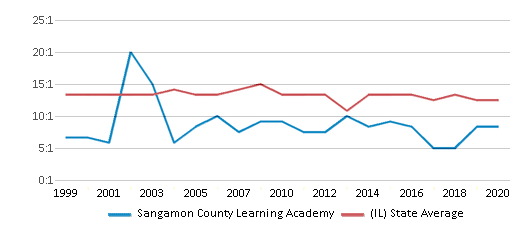
American Indian
(19-20)n/a
n/a
Asian
(19-20)n/a
5%
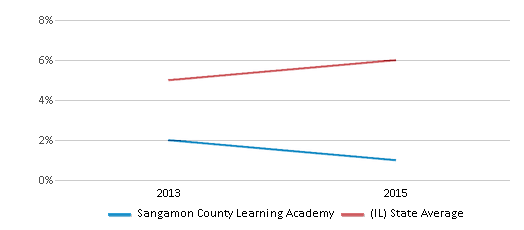
Hispanic
(19-20)6%
26%
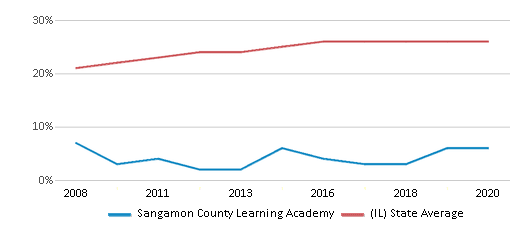
Black
(19-20)7%
17%
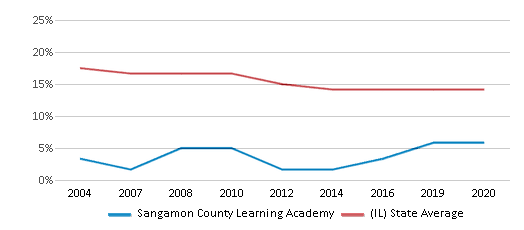
White
(19-20)83%
48%
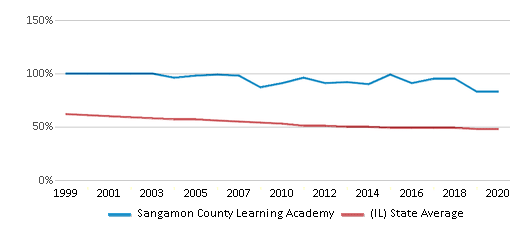
Hawaiian
(19-20)n/a
n/a
Two or more races
(19-20)4%
4%
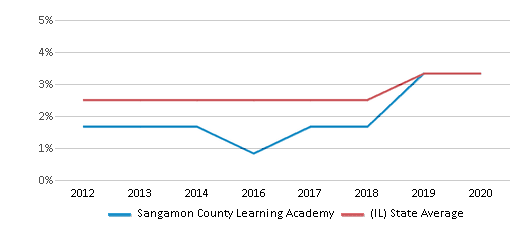
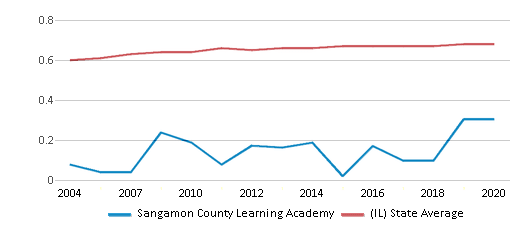
Eligible for Free Lunch (19-20)
58%
47%
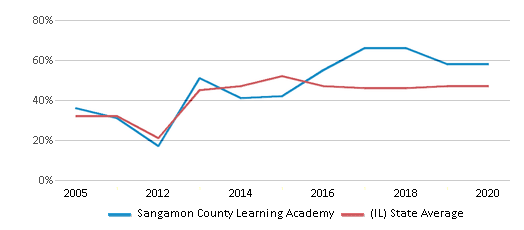
Eligible for Reduced Lunch (11-12)
19%
27%
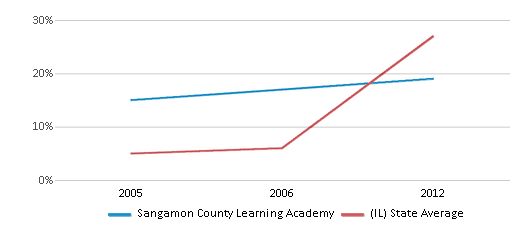
School Statewide Testing
School District Name
Source: National Center for Education Statistics (NCES), IL Dept. of Education
Profile last updated: 02/09/2025
Frequently Asked Questions
What percent of students have achieved state testing proficiency in math and reading?
<50% of students have achieved math proficiency (compared to the 28% IL state average), while <50% of students have achieved reading proficiency (compared to the 32% IL state average).
How many students attend Sangamon County Learning Academy?
52 students attend Sangamon County Learning Academy.
What is the racial composition of the student body?
83% of Sangamon County Learning Academy students are White, 7% of students are Black, 6% of students are Hispanic, and 4% of students are Two or more races.
What grades does Sangamon County Learning Academy offer ?
Sangamon County Learning Academy offers enrollment in grades 6-12
What school district is Sangamon County Learning Academy part of?
Sangamon County Learning Academy is part of Menard/Sangamon ROE School District.
School Reviews
5 10/6/2012
I went to SCLA my junior year of high school and I absolutely do not regret s single moment of it! The teachers are compassionate about what they do, they take time to get to know each student, and try to help them on a personal level. I was behind in credits and almost did not pass high school. Going to SCLA, they picked me back up and gave me the WANT to go to school. I did my time at public schools, if I were to stay in them...I would probably have not graduated and dropped out. I loved my experience, I''m even inviting my teachers to my wedding. Warning though, if your child has trouble following directions, and has no want to learn or get along...they do NOT play games at SCLA, they will either put them in their place or kick them out.
Review Sangamon County Learning Academy. Reviews should be a few sentences in length. Please include any comments on:
- Quality of academic programs, teachers, and facilities
- Availability of music, art, sports and other extracurricular activities
Recent Articles

What Is A Charter School?
Explore the world of charter schools in this comprehensive guide. Learn about their history, how they operate, and the pros and cons of this educational innovation. Discover key facts about charter schools, including admission policies, demographics, and funding, as well as what to look for when considering a charter school for your child.

10 Reasons Why High School Sports Benefit Students
Discover the 10 compelling reasons why high school sports are beneficial for students. This comprehensive article explores how athletics enhance academic performance, foster personal growth, and develop crucial life skills. From improved fitness and time management to leadership development and community representation, learn why participating in high school sports can be a game-changer for students' overall success and well-being.

February 05, 2025
Understanding the U.S. Department of Education: Structure, Impact, and EvolutionWe explore how the Department of Education shapes American education, from its cabinet-level leadership to its impact on millions of students, written for general audiences seeking clarity on this vital institution.





